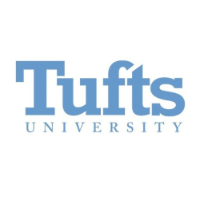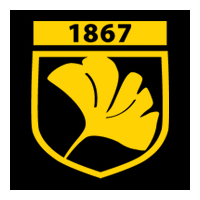What do they do?
Assist in the provision of food service and nutritional programs, under the supervision of a dietitian. May plan and produce meals based on established guidelines, teach principles of food and nutrition, or counsel individuals.
Also known as:
Certified Dietary Manager (CDM), Clinical Dietetic Technician, Cook Chill Technician (CCT), Diet Aide, Diet Assistant, Diet Clerk, Diet Tech (Diet Technician), Diet Tech (Dietetic Technician), Diet Technician Registered (DTR), Dietary Aide, Dietary Technician, Dietetic Assistant, Dietetic Technician Registered (DTR), Nutrition Technician
-
0%
Change
Ranks #50 in job growth rate130Job Openings
Ranks #4 in net job growth
Looking for colleges that offer a specific major? Use the College Match Tool to find your best-matched schools and discover your estimated Net Price!
- High school diploma equivalent (43%)
- Some college, no degree (23%)
- Associate's degree (12%)
- Bachelor's degree (11%)
- Less than high school diploma (9%)
- Master's degree (2%)
- Doctorate or Professional Degree (1%)
Most Popular Majors that prepare Dietetic Technicians
-
#1
-
Degrees Granted
1,379
-
Female Students
1,211
-
Male Students
168
-
Median Starting Salary
$47,533
-
-
#2
-
Degrees Granted
665
-
Female Students
590
-
Male Students
75
-
Median Starting Salary
$44,300
-
-
#3
-
Degrees Granted
560
-
Female Students
470
-
Male Students
90
-
Median Starting Salary
$40,900
-
People in this career often know a lot about:
- Customer and Personal Service - Knowledge of principles and processes for providing customer and personal services. This includes customer needs assessment, meeting quality standards for services, and evaluation of customer satisfaction.
- English Language - Knowledge of the structure and content of the English language including the meaning and spelling of words, rules of composition, and grammar.
- Education and Training - Knowledge of principles and methods for curriculum and training design, teaching and instruction for individuals and groups, and the measurement of training effects.
- Mathematics - Knowledge of arithmetic, algebra, geometry, calculus, statistics, and their applications.
- Public Safety and Security - Knowledge of relevant equipment, policies, procedures, and strategies to promote effective local, state, or national security operations for the protection of people, data, property, and institutions.
- Administration and Management - Knowledge of business and management principles involved in strategic planning, resource allocation, human resources modeling, leadership technique, production methods, and coordination of people and resources.
- Food Production - Knowledge of techniques and equipment for planting, growing, and harvesting food products (both plant and animal) for consumption, including storage/handling techniques.
- Administrative - Knowledge of administrative and office procedures and systems such as word processing, managing files and records, stenography and transcription, designing forms, and workplace terminology.
- Computers and Electronics - Knowledge of circuit boards, processors, chips, electronic equipment, and computer hardware and software, including applications and programming.
- Production and Processing - Knowledge of raw materials, production processes, quality control, costs, and other techniques for maximizing the effective manufacture and distribution of goods.
- Personnel and Human Resources - Knowledge of principles and procedures for personnel recruitment, selection, training, compensation and benefits, labor relations and negotiation, and personnel information systems.
People in this career often have talent in:
- Oral Comprehension - The ability to listen to and understand information and ideas presented through spoken words and sentences.
- Oral Expression - The ability to communicate information and ideas in speaking so others will understand.
- Deductive Reasoning - The ability to apply general rules to specific problems to produce answers that make sense.
People in this career often do these activities:
- Monitor patient progress or responses to treatments.
- Monitor nutrition related activities of individuals or groups.
- Inform medical professionals regarding patient conditions and care.
- Collect medical information from patients, family members, or other medical professionals.
- Evaluate patient functioning, capabilities, or health.
- Analyze patient data to determine patient needs or treatment goals.
- Manage preparation of special meals or diets.
- Supervise medical support personnel.
- Provide health and wellness advice to patients, program participants, or caregivers.
- Refer patients to other healthcare practitioners or health resources.
- Collaborate with other professionals to assess client needs or plan treatments.
- Collaborate with healthcare professionals to plan or provide treatment.
- Conduct research to increase knowledge about medical issues.
- Communicate health and wellness information to the public.
- Train medical providers.
This page includes data from:

 Occupation statistics: USDOL U.S. Bureau of Labor Statistics Occupational Employment Statistics
Occupation statistics: USDOL U.S. Bureau of Labor Statistics Occupational Employment Statistics
 Videos: CareerOneStop, USDOL/ETA and the Minnesota Department of Employment & Economic Development
Videos: CareerOneStop, USDOL/ETA and the Minnesota Department of Employment & Economic Development










